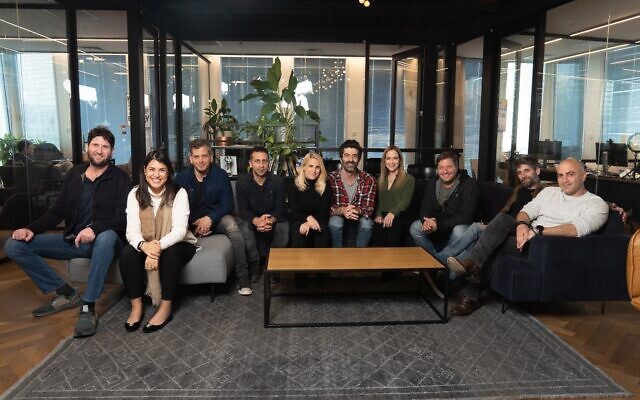Israeli tech company exits, defined as mergers and acquisitions or initial public offerings of shares, fell 54% in 2022 to their lowest level in eight years. global stock market volatility Rising valuations were brought down and the specter of an economic slowdown and high financing costs reignited deal flow.
2022 sees 120 completed tech exits (including IPOs, M&A and buyouts) with a total value of $20.6 billion, down from 261 exits in 2021 with a total value of $23.6 billion, according to IVC Israel Tech, 2014 The steepest decline has occurred since. Review report prepared by research center IVC and LeumiTech, a Leumi banking branch specializing in banking for technology companies.
he is marked after 2021 record year For tech IPOs and M&As in Israel, as tech firms see the exit hop An unprecedented $81.2 billion, up an astonishing 520 percent in value. But in 2022, as markets begin to reverse, publicly traded valuations and stocks are falling amid rising inflation and interest rates, supply chains and the global economy from Russia’s war on Ukraine. is, and investors are coming down.
“The restart of Israel’s high-tech requires a paradigm shift,” said Timor Arbel-Sadras, CEO of LeumiTech. “The data shows that in 2022, the number of acquisitions will be lower than in 2014. Additionally, we are seeing a sharp decline in the amount invested in Series A rounds.”
“These indicators are a call to action,” Arbel-Sadras said.
The number of tech firms going public via an IPO in 2022 is set to drop to 13 with a total valuation of $1.17 billion, a sharp decline from 75 IPOs in 2021 with a total valuation of $10 billion. There have only been four technical public offerings on Tel. Aviv Stock Exchange (TASE) in 2022, and nine in the US. This is compared with 48 IPOs made on TASE in 2021 and 23 in the US.
“In 2022, there was a bearish view of Israel’s exit, with the number of IPOs declining, and returning to average historical numbers,” the report said. “In the current environment, as mature companies struggle to raise more capital or make public offerings, more mergers and acquisitions are expected in the second half of 2023.”
“We anticipate that these acquisitions will be undertaken by tech companies at more advanced stages and by private equity firms, while efficiently financed by capital and debt combinations,” commented Arbel-Sadras.
A breakdown of tech exit data showed that last year, seven deals over $500 million accounted for nearly 71% of the total exit amount, while two acquisitions together came to $10.2 billion and contributed 50% of total earnings in 2022. Last year’s major deal was Israeli ad tech and app monetization firm IronSource Fusion in an all-stock deal with US gaming firm Unity Software worth about $4.4 billion.
The deal comes after IronSource went public through a merger with Thoma Bravo Advantage, a special purpose acquisition company (SPAC) listed on the New York Stock Exchange in 2021 at an implied equity valuation of $11 billion. This was considered the highest ever valuation for an Israeli firm prior to a public offering.
Other notable M&As are from Intel acquisition Israel’s Tower Semiconductor for $5.8 billion and the chipmaker to buy Israeli computing tech startup Granulet for about $650 million.
Tech funding slows down
Israeli tech startups and companies raised nearly $15 billion in 663 deals during 2022. The figure marks a 42% decline from the 2021 bonanza funding year, when Israeli companies raised $25.9 billion in private investment, leading to higher company valuations.

Illustration of a centaur businessman and a businessman riding a unicorn. (by rudall30 Getty Images via iStock)
Most of the decline occurred in the second half of 2022 as investors in private companies slowed down their investments amid rising interest rates, global stock market collapse and technology layoffs. Raising money is very difficult in a volatile market and companies are looking to raise cash over the long term to ensure their survival.
2022 also proved to be a tough year for the global tech industry, with nearly $445 billion in private venture funding, marking a 35% decline from the $681 billion invested in 2021, which in itself is a significant year for global tech. It was also a record year. IPOs and M&As According to Crunchbase statistics,
Unicorn’s growth is affected
Unicorns, who were the talk of the Israeli tech industry in 2021 as massive funding rounds boost valuations, are “main victims of financial system changes” in 2022, IVC-LeumiTech report finds citing decline in the number of mega-funding rounds of over $100 million.
As a result, 2022 was also a year in which Israeli-founded unicorns, or privately held companies, were valued at more than $1 billion. In the fourth quarter of 2022, two Israeli tech companies hit the $1 billion valuation threshold, following one new unicorn in the third quarter, bringing the total number of new unicorns to 23. That’s a little more than half of the record 42 new unicorns expected in 2021. ,
There are 98 Israeli-established unicorns, with 23 born in 2022, down from the 42 new ones recorded in 2021, but still up from the 19 new ones in 2020. According To Tech Aviv, which tracks the industry. Forty of these unicorns, or some 41%, are based in Israel, with the rest in Silicon Valley, 24; in New York, 19; five in Boston; four in London; two in Los Angeles; and one each in Singapore, Chicago, Barcelona and Dallas.
“We believe that 2023 will again find a balance between investors and companies in the Israeli high-tech ecosystem,” said Guy Holzman, co-founder and CEO of IVC. “It is only realistic to expect that this process will involve unpleasant side effects, and the year ahead will be a difficult one for many startups.
“However, without an additional major economic crisis or significant change in the geopolitical map, IVC data supports the hypothesis that we will see increased capital inflows into the local high-tech ecosystem during the second half of this year, Holzman speculated.
Arbel-Sadras said that 2023 will be a year during which tech firms and investors “should realistically look at their future in the current environment and make responsible strategic decisions at the appropriate time.”
“We anticipate that these acquisitions will be undertaken by tech companies at more advanced stages and by PE firms, while being efficiently financed by capital and debt combinations,” Arbel-Sadras said. “We expect Israeli companies to enjoy these opportunities, not just foreign ones.”
The IVC-LeumiTech report reviews capital raised by Israeli tech firms from Israeli and foreign venture capital funds as well as other investors, such as investment companies, corporate investors, incubators and angels. The report is based on data from 564 investors, of whom 96 were Israeli VC funds and 467 were other institutions.
